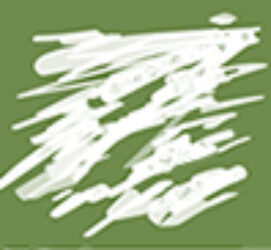April 17, 2024 / 12 P.M.- 1:00 P.M. Eastern (U.S. and Canada)
“OUT OF THE FRAME: CRISES IN SUDAN AND THE DEMOCRATIC REPUBLIC OF CONGO
The historical record is marked by events, people, and communities that remain just out of the frame. They are there, clearly visible, but no one pays attention to them. And we should.
The Center for the Study of the Holocaust, Genocide, and Crimes Against Humanity (Graduate Center—City University of New York), in cooperation with Marion Kaplan, Professor Emerita of Hebrew and Judaic Studies (NYU) and Raz Segal, Endowed Professor in the Study of Modern Genocide (Stockton University), offers a year-long virtual series, Out of the Frame, to center topics long overlooked.
Please join us on Wednesday 17 April 2024 at 12:00 noon (EDT) for the last of the series:
“Crises in Sudan and the Democratic Republic of Congo”
The ongoing conflicts in the Democratic Republic of Congo and Sudan have witnessed mass killings of civilians, internal displacement, and the destruction of infrastructure. Yet the humanitarian crises in two of Africa’s largest countries remain outside the international spotlight. This roundtable discussion features human rights activist/scholars Fred Bauma and Nisrin Elamin. Executive Secretary of Ebuteli, a Kinshasa-based research institute, Mr Bauma is a member of Lutte pour le Changement (LUCHA), a key pro-democracy movement in the DRC; he is a leading exponent of non-violent politics in Africa today. Prof Nisrin Elamin (University of Toronto) investigates the connections between land, race, belonging and empire-making in Sudan and the broader Sahel region. She uses land and struggles over land as a lens through which to examine state surveillance of Sahelian migration.
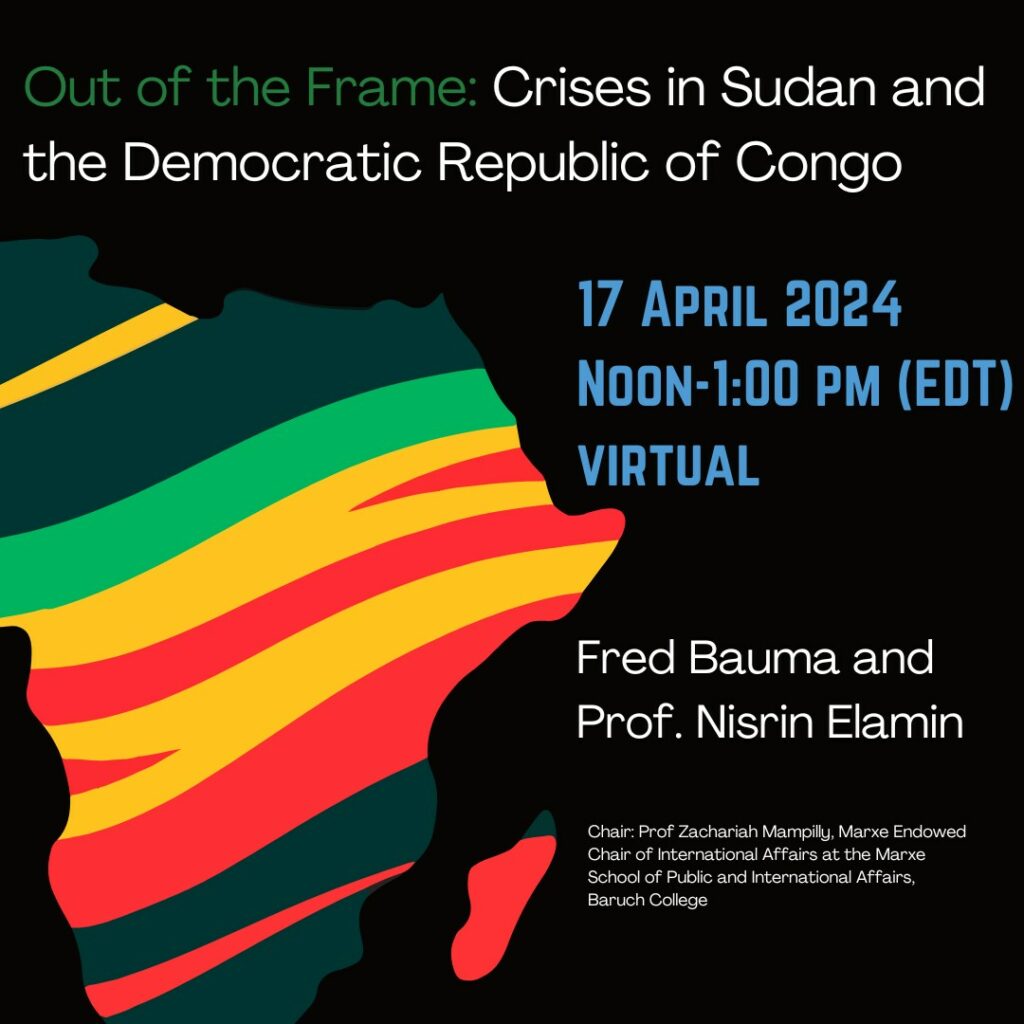
Chair: Prof Zachariah Mampilly, Marxe Endowed Chair of International Affairs at the Marxe School of Public and International Affairs, Baruch College.
This event is hosted by The Center for the Study of the Holocaust, Genocide, and Crimes Against Humanity, The Graduate Center—City University of New York
In association with:
CUNY Academy for the Humanities and Sciences, The Graduate Center—City University of New York
The William T. Daly School of General Studies and the Master of Arts in Holocaust and Genocide Studies, Stockton University
April 9, 2024 / 4 P.M.- 5:30 P.M. Eastern (U.S. and Canada)
COMPLICATED CONVERSATIONS: ABOUT THAT TERM “GENOCIDE”
A new series hosted by the Center for the Study of the Holocaust, Genocide, and Crimes Against Humanity, and sponsored by CUNY’s new Anti-Hate Initiative.
Tuesday 9 April 2024:
4:00-5:15 PM (EDT) VIRTUAL
“Genocide” has become a keyword for our time, deployed by victim groups and their advocates in Asia, Africa, the Americas, and Europe. While a powerful cry for help and attention as “the crime of crimes,” do “genocide” allegations perform the work intended by their claimants? And what of patently self-serving and vexatious usages of the term? This roundtable will plumb the attractions and functions of claims of “genocide” in conflicts today.
Zachariah Mampilly holds the Marxe Endowed Chair of International Affairs at Baruch College—CUNY. He is the author of Africa Uprising: Popular Protest and Political Change. Zoé Samudzi serves as the Charles E. Scheidt Visiting Assistant Professor of Genocide Studies and Genocide Prevention at Clark University. She is the coauthor (with William Anderson) of As Black as Resistance: Finding the Conditions for Liberation. Professor of international relations at Georgia State University, Jelena Subotic’s most recent book is Yellow Star, Red Star: Holocaust Remembrance after Communism.
Chair/moderator A. Dirk Moses is the Anne and Bernard Spitzer Professor of International Relations at City College of New York. He is the author of The Problems of Genocide: Permanent Security and the Language of Transgression.
MARCH 27, 2024 / 4 P.M.- 5:30 P.M. Eastern (U.S. and Canada)
COMPLICATED CONVERSATIONS: RACE AND THE QUESTION OF PALESTINE
A new series hosted by the Center for the Study of the Holocaust, Genocide, and Crimes Against Humanity, and sponsored by CUNY’s new Anti-Hate Initiative.
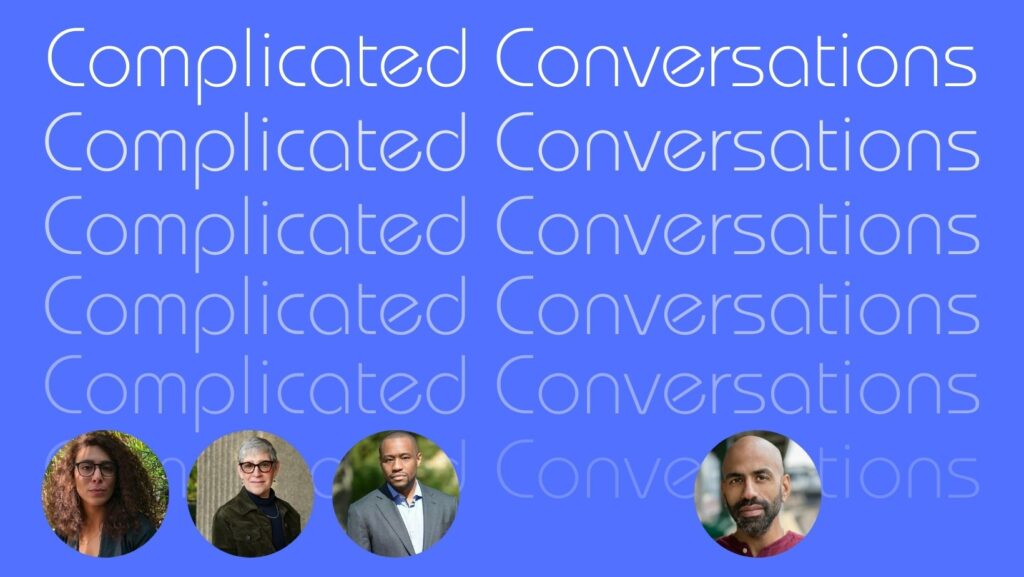
IN PERSON at the Graduate Center-CUNY at 365 5th Ave.
Room: The Skylight Room on the 9th floor. (Room 9207)
How do racial discourses shape the conflict in Israel and Palestine? Whether debating terms like “indigeneity,” “settler colonialism,” “apartheid,” and “genocide;” racial differences in public opinion in the United States; or the divide between countries in the “Global South” versus the “Global North,” race haunts the conflict like a specter. This roundtable will explore the uses and abuses of race and racialization frameworks for understanding the ongoing war in Israel/Palestine.
Sophia Azeb is an assistant professor of Black Studies in the Department of Critical Race and Ethnic Studies at the University of California, Santa Cruz. Her current book project is titled Another Country: Translational Blackness and the Afro-Arab. Professor in the Department of Social Justice in Education at the University of Toronto, Abigail Bakan’s most recent book (coauthored with Yasmeen Abu-Laban) is Israel, Palestine and the Politics of Race: Exploring Identity and Power in a Global Context. Scholar/activist/media personality Marc Lamont Hill (GC-CUNY) serves as a Presidential Professor in Urban Education and Anthropology. His book, Except For Palestine: The Limits of Progressive Politics,won the Palestine Book Award.
Chair/moderator Prof. Zachariah Mampilly holds the Marxe Endowed Chair of International Affairs at the Marxe School of Public and International Affairs (Baruch College—CUNY). He is the author of Africa Uprising: Popular Protest and Political Change
FEBRUARY 15, 2024 / 12 P.M.- 1:00 P.M. Eastern Standard Time (U.S. and Canada)
THE COUNTERFEIT COUNTESS: A JEWISH WOMAN WHO RESCUED THOUSANDS OF POLES DURING THE HOLOCAUST
Jewish mathematician Dr. Josephine Janina Mehlberg operated in Lublin, headquarters of Aktion Reinhard, the SS operation that murdered 1.7 million Jews in occupied Poland. Masquerading as a Polish aristocrat, the “Countess” persuaded SS officials to release thousands of Poles from Majdanek concentration camp. She secured permission to deliver food and medicine for thousands more inmates, and she smuggled supplies and messages to incarcerated resistance fighters. Incredibly, she eluded detection, survived the war, and emigrated to the US. Piecing together her history, co-authors Elizabeth White (former Research Director for the Center for the Prevention of Genocide at the United States Holocaust Memorial Museum) and Joanna Sliwa (historian at the Conference on Jewish Material Claims Against Germany) shine a bright light on this unrecognized hero, disrupt the narrative norm of non-Jews helping Jews, and interrogate why Dr Mehlberg has remained out of the frame for the better part of a century.
Chair: Center Director Debórah Dwork (GC—CUNY)
This event is hosted by The Center for the Study of the Holocaust, Genocide, and Crimes Against Humanity, The Graduate Center—City University of New York
In association with:
Center for Jewish Studies at The Graduate Center—City University of New York
CUNY Academy for the Humanities and Sciences, The Graduate Center—City University of New York
The Holocaust and the United Nations Outreach Programme, Education Outreach Section, Outreach Division, Department of Global Communications, United Nations
NOVEMBER 15, 2023 / 12 P.M.- 1:00 P.M. Eastern Standard Time (U.S. and Canada)
THE COST OF FREE LAND: JEWS, LAKOTA, AND AN AMERICAN INHERITANCE
Growing up, Rebecca Clarren knew the major plot points of her tenacious immigrant family’s origins. Her great-great-grandparents, the Sinykins, and their six children fled antisemitism in Russia and arrived in the United States at the turn of the 20th century, ultimately settling on a 160-acre homestead in South Dakota. The Sinykins became an American immigrant success story. What no one mentioned was that their land, the foundation for much of their wealth, had once been reserved for the seven bands of the Lakota. Taken by the United States government, it was splintered and handed for free to white settlers. Wayne L. Ducheneaux II, a member of the Cheyenne River Sioux Tribe and the Executive Director of the Native Governance Center, will discuss these intertwined histories with award-winning journalist Rebecca Clarren; together they will explore the personal and national consequences of this legacy of violence and dispossession.
Chair: Center Director Debórah Dwork (GC—CUNY)
This event is hosted by The Center for the Study of the Holocaust, Genocide, and Crimes Against Humanity, The Graduate Center—City University of New York
In association with:
Center for Jewish Studies at The Graduate Center—City University of New York
CUNY Academy for the Humanities and Sciences, The Graduate Center—City University of New York
The William T. Daly School of General Studies and the Master of Arts in Holocaust and Genocide Studies, Stockton University
SEPTEMBER 20, 2023 / 12 P.M.- 1:00 P.M. Eastern Daylight Time (U.S. and Canada)
RAIN OF ASH: ROMAS, JEWS, AND THE HOLOCAUST
The historical record is marked by events, people, and communities that remain just out of the frame. They are there, clearly visible, but no one pays attention to them. And we should.
The Center for the Study of the Holocaust, Genocide, and Crimes Against Humanity (Graduate Center—City University of New York), in cooperation with Marion Kaplan, Professor Emerita of Hebrew and Judaic Studies (NYU) and Raz Segal, Endowed Professor in the Study of Modern Genocide (Stockton University), offers a year-long virtual series, Out of the Frame, to center topics long overlooked.
Please join us on Wednesday 20 September 2023 at 12:00 noon (EDT) for the first of the series:
“Rain of Ash: Roma, Jews, and the Holocaust”
Founder of the field of Critical Romani Studies Ethel Brooks will chat with award-winning author Ari Joskowicz about his new book, Rain of Ash: Roma, Jews, and the Holocaust. Jews and Roma died side by side in the Holocaust, yet their murder has not been recognized equally. The Jewish experience of genocide increasingly occupied the attention of legal experts, scholars, educators, curators, and politicians in the postwar years, while the genocide of Europe’s Roma and Sinti remained out of the frame. Prof. Ethel Brooks, Chair of Women’s, Gender, and Sexuality Studies at Rutgers University, and Prof Ari Joskowicz, Chair of the Department of Jewish Studies, Vanderbilt University, will discuss Joskowicz’s exploration of the simultaneous suffering of Roma and Jews during the Holocaust, as well as the unequal yet necessary entanglement of their quests for historical justice and self-representation. Rain of Ash was awarded the 2022 Ernst Fraenkel Prize.
Chair: Prof. Raz Segal
This event is hosted by The Center for the Study of the Holocaust, Genocide, and Crimes Against Humanity, The Graduate Center—City University of New York
In association with:
Center for Jewish Studies at The Graduate Center—City University of New York
CUNY Academy for the Humanities and Sciences, The Graduate Center—City University of New York
The Holocaust and the United Nations Outreach Programme, Education Outreach Section, Outreach Division, Department of Global Communications, United Nations
The William T. Daly School of General Studies and the Master of Arts in Holocaust and Genocide Studies, Stockton University
APRIL 27, 2023 / 12 P.M.- 1:00 P.M. Eastern Daylight Time (U.S. and Canada)
“BEYOND THE SETTLER STATE: ANTICOLONIAL PASTS/FUTURES IN PALESTINE/ISRAEL
The Center for the Study of the Holocaust, Genocide, and Crimes Against Humanity (GC—CUNY), in association with the School of General Studies and the Master of Arts in Holocaust and Genocide Studies (Stockton University) and the Skirball Department of Hebrew and Judaic Studies (New York University), offers a year-long virtual series, The Marginalized and the Erased, to tackle a number of those blank spots.
Born in the Bronx or Berlin, Jews of a certain age remember the justificatory slogan for the establishment of Israel, “A land without a people for a people without a land.” Persuasive as this may have been at the time, it spoke and continues to speak today to a settler colonial policy of violent erasure. Erasure that the November 2022 Israeli election and subsequent ministerial choices promise to intensify. Looking forward, what futures beyond the settler state might there be? Please join us for a conversation about possible paths toward anticolonial futures, particularly in light of anticolonial pasts, in the land between the Jordan River and the Mediterranean Sea. The discussion will feature Sarah Ihmoud, a scholar of militarism, occupation, borderlands, and Palestine, and Holocaust and Genocide Studies scholar, Raz Segal.
This event is hosted also in association with:
The Center for Jewish Studies, The Graduate Center—City University of New York
CUNY Academy for the Humanities and Sciences, The Graduate Center–CUNY
MARCH 16, 2023 / 1 P.M.- 2:00 P.M. Eastern Daylight Time (U.S. and Canada)
“THE BEDOUIN VILLAGE OF RAH’MA: TOWARD RECOGNITION AND BEYOND”
The historical record is marked by voids: elided events; disappeared people; erased accounts; marginalized communities.
The Center for the Study of the Holocaust, Genocide, and Crimes Against Humanity (GC—CUNY), in association with the School of General Studies and the Master of Arts in Holocaust and Genocide Studies (Stockton University) and the Skirball Department of Hebrew and Judaic Studies (New York University), offers a year-long virtual series, The Marginalized and the Erased, to tackle a number of those blank spots.
The Bedouin of the Negev desert have long sought legal recognition from the State of Israel. Without legal status, they are denied their basic rights as Israeli citizens: access to public health services, water, electricity, public transportation, is inadequate or unavailable. Rah’ma is one of the few unrecognized villages that has been promised recognition, yet that promise remains unfulfilled. Still: a school has been approved and built, public utilities have improved, and village residents see some hope. What makes Rah’ma different from other Bedouin villages in the Negev? What paved the way to the promise of recognition? What changes will recognition bring? And can Rah’ma be a model for Israeli-Bedouin relations going forward? Please join for a discussion between Sliman Elfregat, Rah’ma school principal; Debbie Golan, co-founder and president of Atid Bamidbar (A Future in the Desert); and Dvir Warshavsky, Ministry of Education project director. Chair and moderator: Eli Karetny, deputy director of the Ralph Bunche Institute.
This event is hosted also in association with:
The Center for Jewish Studies, The Graduate Center—City University of New York
CUNY Academy for the Humanities and Sciences, The Graduate Center–CUNY
FEBRUARY 23, 2023 / 12 P.M.- 1:00 P.M. Eastern Standard Time (U.S. and Canada)
“THE RUSSIAN INVASION OF UKRAINE: A YEAR OF WAR & GENOCIDE”
Russia launched a full-scale invasion of Ukraine on 24 February 2022, escalating the war it had unleashed in 2014. With an avowed goal of de-Ukrainization, Russia rejects the idea of Ukrainian statehood and has declared genocidal goals in Ukraine.
Please mark the anniversary of Russia’s invasion of Ukraine by joining us for a conversation about the war, its long-term consequences, and its genocidal nature. The discussion will feature Eugene Finkel, a scholar of genocide and author of the forthcoming To Kill Ukraine, and Elissa Bemporad, an expert on anti-Jewish violence in Ukraine.
Chair: Natalya Lazar, Director of the Initiative on Ukrainian-Jewish Shared History and the Holocaust in Ukraine, at the United States Holocaust Memorial Museum.
PANELISTS:
Eugene Finkel is the Kenneth H. Keller Associate Professor of International Affairs, Johns Hopkins University.
IN CONVERSATION WITH:
Elissa Bemporad is Professor of History and Ungar Chair in East European Jewish History and the Holocaust at Queens College and CUNY Graduate Center.
MODERATOR:
Natalya Lazar is the Program Manager, The Initiative on Ukrainian-Jewish Shared History and the Holocaust in Ukraine, at the United States Holocaust Memorial Museum.
This event is hosted in association with:
The Center for Jewish Studies at the Graduate Center—CUNY
The Jack, Joseph and Morton Mandel Center for Advanced Holocaust Studies, USHMM
FEBRUARY 15, 2023 / 12 P.M.- 1:00 P.M. Eastern Standard Time (U.S. and Canada)
“ISRAEL/PALESTINE: WHAT DO THE ARCHIVES REVEAL/CONCEAL?
The story of the past calls for extensive use of archival documents. But, adducing risk to state security, Israeli archives, especially the state archives, block access to key collections that pertain to the state’s history in general and the Palestinian Nakba and ongoing Israeli-Palestinian conflict in particular. Palestinian researchers who seek to tell the story of the Palestinian past using Palestinian personal papers and archival materials face additional, unofficial, obstacles. Areej Sabbagh-Khoury, professor of sociology at the Hebrew University and a 2022 Guggenheim Distinguished Scholar, and Yaacov Lozowick, a historian who served as Israel’s chief archivist from 2011-2018, will discuss what Israeli archives reveal and conceal. Please join for a challenging conversation that will range from the role of archives in the power dynamics of the conflict to the stories still to be told if access to the archives were unfettered. Chair and moderator: Hebrew University professor Amos Goldberg, head of the Avraham Harman Research Institute for Contemporary Jewry.
PANELISTS:
Areej Sabbagh-Khoury, Professor of sociology at the Hebrew University and a 2022 Guggenheim Distinguished Scholar
Yaacov Lozowick, Historian, Israel’s chief archivist from 2011-2018
CHAIR:
Amos Goldberg, Hebrew University professor; Head of the Avraham Harman Research Institute for Contemporary Jewry
In association with:
The Center for Jewish Studies, The Graduate Center—City University of New York
CUNY Academy for the Humanities and Sciences, The Graduate Center—City University of New York
The School of General Studies and the Master of Arts in Holocaust and Genocide Studies, Stockton University
The Skirball Department of Hebrew and Judaic Studies, New York University
“Finding the Disappeared: The Role of Truth Commissions and Post-Conflict Justice Initiatives in Colombia, Guatemala and Mexico”
A challenging conversation about recovering disappeared persons and the promotion of human rights.
A stellar panel of scholar/activists will explore the role of truth commissions and other international justice efforts to document, sanction, and establish reparations for 20th and 21st century rights violations in Colombia, Guatemala and Mexico. Professor and Senior Researcher at the Center for Research and Advanced Studies in Social Anthropology in Mexico City, Aída Hernández promotes women’s and indigenous people’s human rights in Mexico. An activist researcher, her work with families of missing person focuses on strategies of resistance. Tatiana Devia, a staff attorney for the Transitional Justice Program at (the non-profit) Corporate Accountability Lab, has investigated human rights abuses in Colombia and analyzed the work of Truth Commissions through a gender lens. Ana María Méndez Dardón, Director for Central America Program, Washington Office on Latin America, served as special projects officer to the International Commission against Impunity in Guatemala (CICIG). She seeks to strengthen access to justice in Guatemala and has shone a bright light on women illegally detained during the Rios Montt dictatorship.
Chair: Prof. Victoria Sanford
The Center for the Study of the Holocaust, Genocide, and Crimes Against Humanity, The Graduate Center—City University of New York
In association with:
Colombian Studies Group, The Graduate Center—City University of New York
CUNY Academy for the Humanities and Sciences
The PhD Program in Anthropology, The Graduate Center—City University of New York
The School of General Studies and the Master of Arts in Holocaust and Genocide Studies, Stockton University
The Skirball Department of Hebrew and Judaic Studies, New York University
“Post-Roe America: Women and Human Rights”
A challenging conversation about the loss of bodily autonomy and human rights
With the extinction of abortion access as a constitutional right, obstetric care has become a legal labyrinth and cybersecurity for individuals has emerged as a serious concern. Frontline expert Dr Lisa Harris will address the thorny question of how the SCOTUS decision shapes medical practice. And cybersecurity experts Eva Galperin and Jennifer Granick will plumb the weaponization by law enforcement and ordinary citizen bounty hunters of women’s telephone call histories, browser histories, text messages, emails, location data, and payment records. Lisa Harris is Associate Chair of Ob/Gyn at the University of Michigan Medical School; her research sits at the intersection of clinical obstetrical and gynecological care and law, policy, and politics. Eva Galperin, at the forefront of cybersecurity research, policy, and practice, is dedicated to providing privacy and security for vulnerable populations around the world; Galperin serves as Director of Cybersecurity at the Electronic Frontier Foundation. Jennifer Granick is a lawyer and prize-winning author. As the Surveillance and Cybersecurity Counsel with the Speech, Privacy and Technology Project at the American Civil Liberties Union, Granick litigates, speaks, and writes about privacy, security, technology, and constitutional rights.
Chair: Marion Kaplan
The Center for the Study of the Holocaust, Genocide, and Crimes Against Humanity, The Graduate Center—City University of New York
In association with:
The School of General Studies and the Master of Arts in Holocaust and Genocide Studies, Stockton University
The Skirball Department of Hebrew and Judaic Studies, New York University
The historical record is marked by voids: elided events; disappeared people; erased accounts; marginalized communities.
The Center for the Study of the Holocaust, Genocide, and Crimes Against Humanity (GC—CUNY), in association with the School of General Studies and the Master of Arts in Holocaust and Genocide Studies (Stockton University) and the Skirball Department of Hebrew and Judaic Studies (New York University), offers a year-long virtual series, The Marginalized and the Erased, to tackle a number of those blank spots.
Please join us on September 29, 2022 at 12:00 noon (EDT) for the first of the series:
“Forgotten, Ignored, and Distorted Histories of Romani People: Past and Present”
Groundbreaking scholars Ethel Brooks, Ioanida Costache, and László Csősz move between past and present as they plumb the history of anti-Roma racist violence, and the erasure of that history even as the violence persists. Drawing upon testimonies and documents, their presentations reveal individual, communal, and institutional obstacles to remembrance and education. Chair of Women’s, Gender, and Sexuality Studies at Rutgers University, award-winning scholar Prof. Ethel Brooks serves (among many positions) as Chair of the Board of the European Roma Rights Center. Dr Ioanida Costache, recipient of a prestigious postdoctoral fellowship at the University of Pennsylvania, focuses on Romani historical trauma and artistic practice. Prof. László Csősz, historian and senior archivist at the National Archives of Hungary is also a Claims Conference University Partnership in Holocaust Studies Senior Lecturer at the ELTE University in Budapest. His current project explores the wartime history of the Hungarian Roma.
PANELISTS:
Iya Kiva: Poet
Eugene Kotylar: Historian
Olga Tokariuk: Journalist
CO-CHAIRS:
Natalya Lazar, Initiative on Ukrainian-Jewish Shared History and the Holocaust in Ukraine, United States Holocaust Memorial Museum
Elissa Bemporad, Queens College and the Graduate Center, CUNY
This event is hosted in association with:
The Center for Jewish Studies at the Graduate Center—CUNY
The School of General Studies and Graduate Education and the Master of Arts in Holocaust and Genocide Studies, Stockton University
The Jack, Joseph and Morton Mandel Center for Advanced Holocaust Studies, USHMM
PANELISTS:
Yuri Radchenko: Historian
Ostap Slyvynsky: Poet
Anton Sykba: Photojournalist
CO-CHAIRS:
Natalya Lazar, Initiative on Ukrainian-Jewish Shared History and the Holocaust in Ukraine, United States Holocaust Memorial Museum
Elissa Bemporad, Queens College and the Graduate Center, CUNY
APRIL 28, 2021 / 12 P.M.- 1:15 P.M. Eastern Time (U.S. and Canada)
“FLEEING A HOME, SEEKING A HOME: JEWISH REFUGEES IN MODERN TIMES”
This panel grapples with refugee Jews displaced by war in three different geopolitical contexts: Ukraine, Central Asia, and the Middle East. Profs Jeff Veidlinger, Eliyana Adler, and Shay Hazkani recapture lost voices of displacement and rethink the meaning of “refugee” as they explore the experiences of Ukrainian Jews who left their homes in the wake of anti-Jewish violence unleashed during the Russian Civil War; Polish Jews who, in the midst of the Holocaust, fled the Germans and were deported by the Soviets to Central Asia; and of Moroccan Jews, who immigrated to Israel shortly after the establishment of the Jewish state. Chair: Prof. Elissa Bemporad.
This event is hosted in association with The Holocaust and The United Nations Outreach Programme, Outreach Division, Department of Global Communications, United Nations.
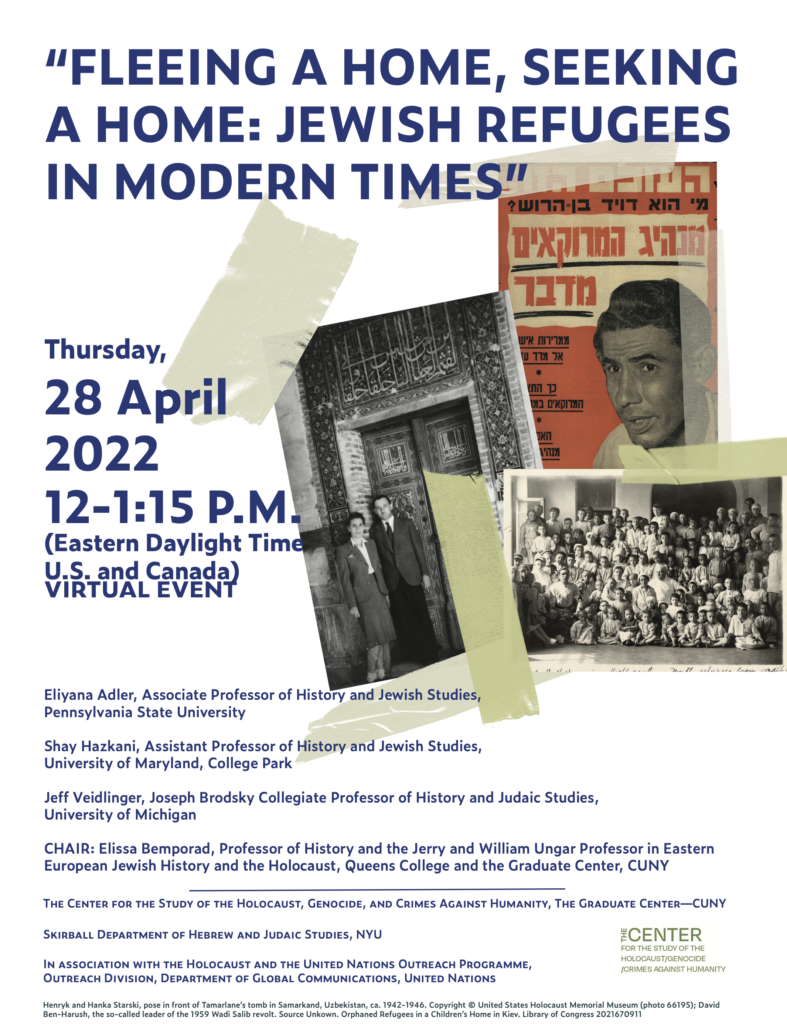
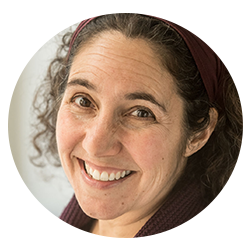
ELIYANA ADLER
Associate Professor, History and Jewish Studies, Pennsylvania State University
Panelist
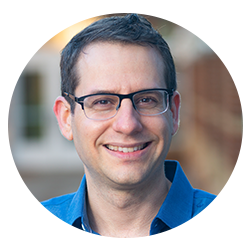
SHAY HAZKANI
Panelist
Assistant Professor, History and Jewish Studies, University of Maryland, College Park
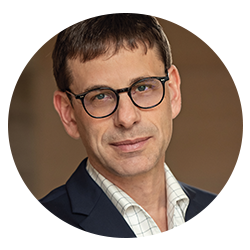
JEFF VEIDLINGER
Panelist
Jospeh Brodsky Collegiate Professor of History and Judaic Studies, University of Michigan
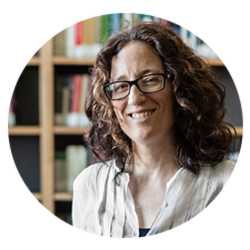
Elissa Bemporad
Chair
Professor of History; Jerry and William Ungar Professor in Eastern European Jewish History and Holocaust, Queens College; Graduate Center- CUNY
PANELISTS:
Yuliya Abibok, National University of Kyiv-Mohyla Academy, Kyiv
Ihor Dvorkin, National Technical University “Kharkiv Polytechnic Institute”
Artem Kharchenko, National Technical University “Kharkiv Polytechnic Institute”
Anatoly Podolsky, Ukrainian Center for Holocaust Studies, Kyiv
CHAIR:
Natalya Lazar, Initiative on Ukrainian-Jewish Shared History and the Holocaust in Ukraine, United States Holocaust Memorial Museum
CO-CHAIR:
Elissa Bemporad, Queens College and the Graduate Center, CUNY
PANELISTS:

MIR ENAYATULLAH MOSWAI
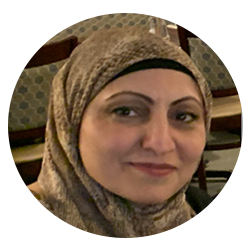
OBAIDA OMAR

DAVID SILVER
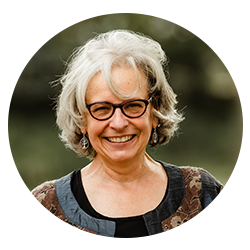
ELLEN SMITH
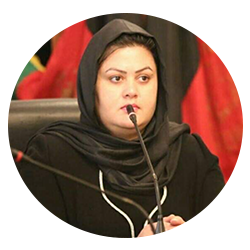
NABILA QADIRI
CHAIR
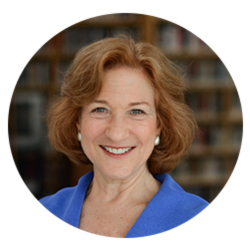
DEBÓRAH DWORK
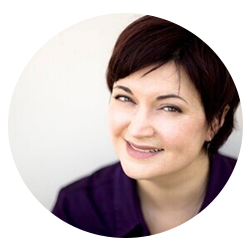
ELIZABETH ANTHONY, PH.D.
Director, Visiting Scholar Programs, Mandel Center for Advanced Holocaust Studies, U.S. Holocaust Memorial Museum, Washington, DC.
Author
The Compromise of Return: Viennese Jews After the Holocaust
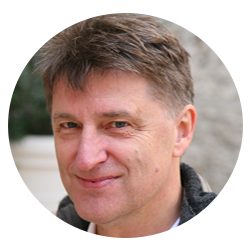
ALBERT LICHTBLAU
(Formerly) Chair of the Center for Jewish Cultural History, and of the History Department at the University of Salzburg
Interviewer
Inter alia: Die Wahrheit der Erinnerung, with Eleanor Lappin
SPRING 2022 VIRTUAL SERIES: REFUGEES & DISPLACED PERSONS
Our Spring Term virtual programs interrogate the meaning of “home” for survivors of genocide and forcibly displaced persons. Why did Holocaust survivors return home to Vienna? How do Afghan refugees create a home in Rochester, NY? And what of people who are forced to flee and find a temporary home where they land?
PLEASE SAVE THESE DATES AND JOIN US:
17 February 2022 12:00-1:00 PM (Eastern Standard Time)
“Where Do I Belong? Holocaust Survivors Return to Vienna”*
23 March 2022 7:00-8:15 PM (Daylight Saving Time, East Coast)
“Refugee Resettlement: Finding a Home in Rochester, NY”
28 April 2022 12:00-1:15 PM (Daylight Saving Time, East Coast)
“Fleeing a Home, Seeking a Home: Jewish Refugees in Modern Times”*
The Center for the Study of the Holocaust, Genocide, and Crimes Against Humanity, The Graduate Center—City University of New York
Skirball Department of Hebrew and Judaic Studies, New York University
*In association with The Holocaust and The United Nations Outreach Programme, Outreach Division, Department of Global Communications, United Nations
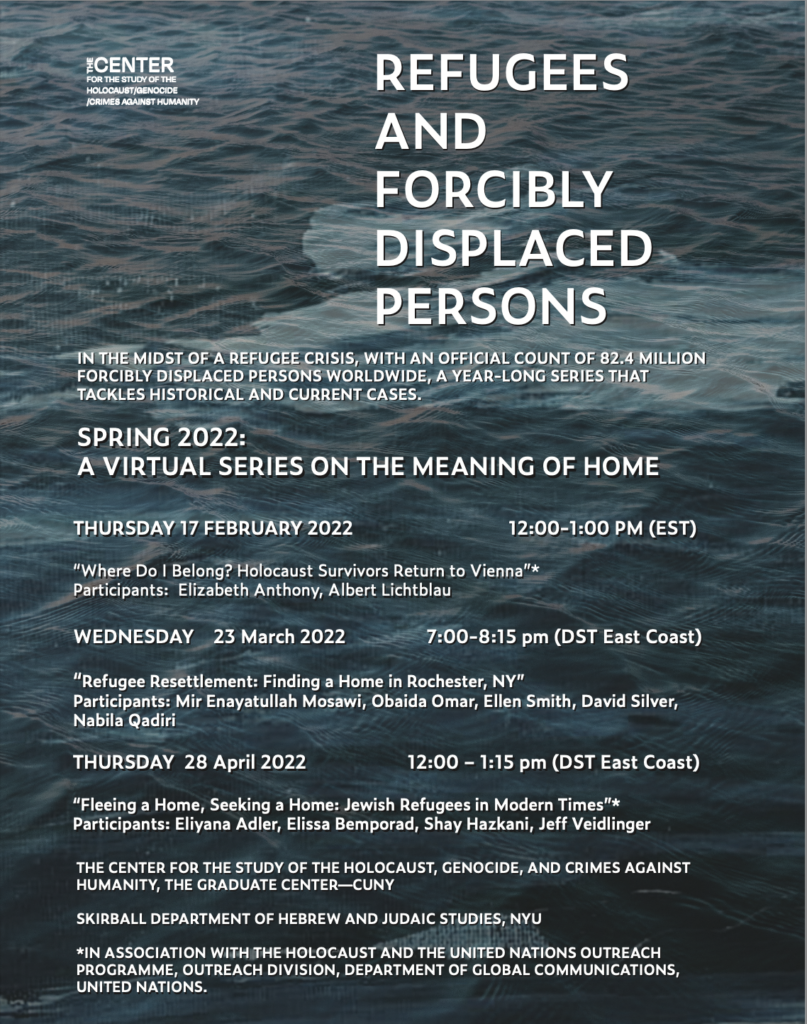
17 February 2022 12:00-1:00 PM (Eastern Standard Time)“Where Do I Belong? Holocaust Survivors Return to Vienna”*
Register: https://gc-cuny.zoom.us/webinar/register/WN_S_Vi7qBDQ_6ssQIacXxBWg
23 March 2022 7:00-8:15 PM (Daylight Saving Time, East Coast)
“Refugee Resettlement: Finding a Home in Rochester, NY”
Register: https://gc-cuny.zoom.us/webinar/register/WN_92hIcYSWTBy1XefW5qoyzQ
28 April 2022 12:00-1:15 PM (Daylight Saving Time, East Coast)
“Fleeing a Home, Seeking a Home: Jewish Refugees in Modern Times”*
https://gc-cuny.zoom.us/webinar/register/WN_x68dd0OMSCCmf3U2S6Yt4Q
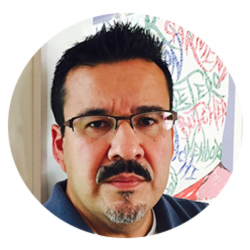
DAVID HERNANDEZ
Associate Professor, Department of Latina/o Studies, Mount Holyoke College
Panelist
“Whiplashed: Refugees, Detention, and the ‘Trump Era.'”
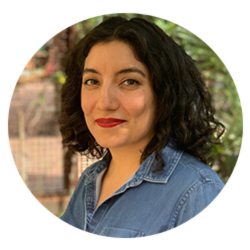
MARLENE RAMOS
Doctoral Candidate, Department of Geography, CUNY
Panelist
“The Making Immigration Imprisonment in New Jersey County Jails and Lessons for the Fight Against Detention”
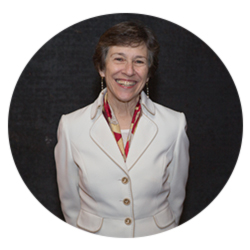
MARION KAPLAN
Skirball Professor of Modern Jewish History, NYU
Chair
OCTOBER 27, 2021 / 12 P.M.- 1:15 P.M. Eastern Time (U.S. and Canada)
THE NEGEV BEDOUIN: EMPTIED LANDS AND DISPLACED PEOPLE
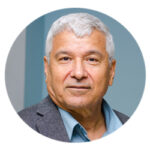
THABET ABU BAS
Co-Executive Director, The Abraham Initiatives; Lecturer at Ben-Gurion University
Panelist
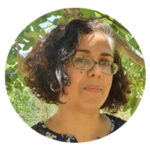
NETTA AMIR-SHIFF
Doctoral candidate, Department of Geography and Environmental Development, Ben Gurion University
Panelist
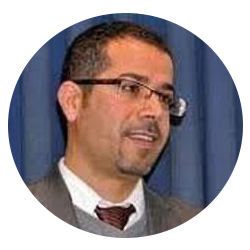
MORAD ELSANA
Research Scholar and Lecturer, Department of Critical Race, Gender and Culture Studies, American University
Panelist
Indigenous Land Rights in Israel: A Comparative Study of the Bedouin
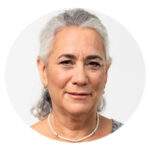
YEELA RAANAN
Department of Public Administration, Sapir Academic College,
Public Relations Officer, Regional Council for the Unrecognized Bedouin Villages in the Negev, Israel.
Panelist
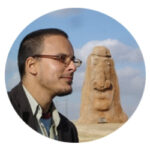
ELI KARETNY
Deputy Director, Ralph Bunche Institute.
Panel Chair & Moderator
SEPTEMBER 30, 2021 / 12 P.M.- 1:15 P.M. Eastern Time (U.S. and Canada)
DISPOSSESSING NATIVE AMERICA: INDIGENEITY, LAND, AND RECLAMATION”
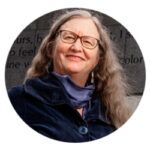
MARGARET D. JACOBS
Charles Mach Professor of History, University of Nebraska-Lincoln; Director, Center for Great Plains Studies
Panelist
After 100 Winters: In Search of Reconciliation on America’s Stolen Lands

CLAUDIO SAUNT
Russell Professor of American History, University of Georgia
Panelist
Unworthy Republic: The Dispossession of Native Americans and the Road to Indian Territory, Bancroft Prize and Robert F. Kennedy Book Award, finalist National Book Award
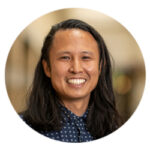
JUSTIN DE LEON
Visiting Assistant Professor of Critical Theory and Social Justice, Occidental College
Panelist
Resurgent Visual Sovereignty (forthcoming)
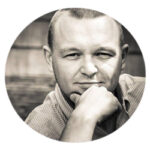
MIKAL BROTNOV ECKSTROM
Research Assistant Professor, Center for Great Plains Studies, UNL
Panel Chair and Moderator
Why You Can’t Teach U.S. History Without American Indians
APRIL 22, 2021 / 12 P.M.- 1:15 P.M. Eastern Time (U.S. and Canada)
“In Honor of Barbara Engelking and Jan Grabowski: New Scholarship on the History and Memory of the Holocaust in Poland”
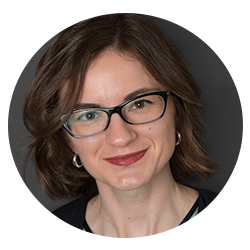
JOANNA SLIWA, Ph.D.
Historian, Conference on Jewish Material Claims Against Germany
Program Chair and Moderator
Jewish Childhood in Kraków: A Microhistory of the Holocaust, awarded the 2020 Fraenkel Prize
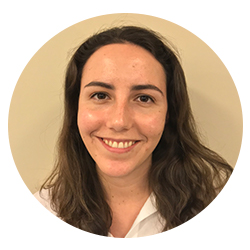
MIRANDA BRETHOUR
Doctoral Candidate, Department of History, The Graduate Center-CUNY
Panelist
“Life and Death in the Shadow of Sobibór: Economic Dimensions of Jewish-Gentile Relations in the Town of Włodawa, 1939-1944”
This paper traces the lines of communication between the Sobibór extermination camp and the Eastern Polish town of Włodawa to explore how knowledge of the mechanisms of extermination shaped Jewish-Gentile interactions during the Holocaust. Drawing on court documents and postwar testimonies, the paper illuminates how widespread local awareness of the murder of Jews at Sobibór drove the plunder and take-over of ‘post-Jewish’ goods and property in and around the town.
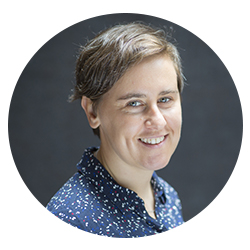
ALICJA PODBIELSKA
Doctoral Candidate, Department of History, Clark University
Panelist
“The Righteous or Szmalcowniks?! Narrative of Rescue v. Holocaust Scholarship”
How is the commemoration of assistance to Jews used to distort history and suppress research on the Holocaust in Poland?
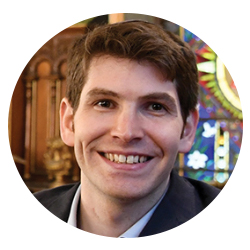
JONATHAN ZISOOK
Doctoral Candidate, PhD Program in Sociology, The Graduate Center-CUNY
Panelist
“‘Polityka Historyczna’ and the Instrumentalization of the Holocaust in Contemporary Poland”
This paper will explore the diverse political strategies employed by the Polish government to distort and instrumentalize the Holocaust as a constitutive feature of its “policy on history” (polityka historyczna).
With comments from Profs. Engelking and Grabowski to follow.

